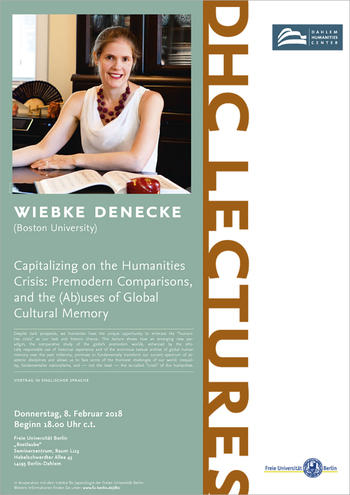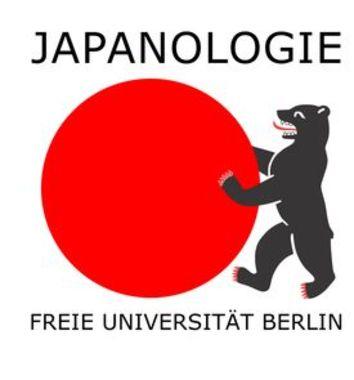Wiebke Denecke
(Boston University)
Capitalizing on the Humanities Crisis: Premodern Comparisons and the (Ab)uses of Global Cultural Memory
Since the “Humanities Crisis” became proverbial around the year 2013 voices have disagreed about its causes and severity. In the midst of the dramatic drop in image and impact and severe institutional and financial retrenchment, we humanists have had too little courage to embrace the “crisis” as our task and historic chance: a true kairos that forces us to embark on a fundamental transformation of our current spectrum of humanistic disciplines, still largely inherited from the 19th century and its worldviews. New fields such as “film and media studies” or “popular culture studies” promise high student enrollment and public attention, but, with their focus on the modern and contemporary periods, they cannot save the main “stuff” of humanistic inquiry: human experience documented in the enormous textual archive of global human memory over the past 5000 years.
Over the past few years a new movement has emerged in the US that promises to complement the presentism of many current global paradigms and emerge as a powerful force to transform humanistic study: philologists of the planet’s various ancient and medieval worlds have spearheaded the comparative study of the “Premodern World” (of the traditional macro-regions of East and South Asia, the Near East and Africa, Europe, the Pre-Columbian Americas), which preceded the pervasive impact of Western colonization and modernization.
What specifically can the study of the premodern world contribute to a deeper self-understanding and to meaningful action in our present moment? What kind of conceptual work needs to be done to make the very different worlds and traditions of various macro-regions through history “comparable”?
Based on the emerging paradigm of comparative premodern studies this lecture sketches a vision for the “new global humanities” that would be truly planetary, comparative, and world-inclusive in theory and practice and that would help protect, defend and utilize the historical experience and cultural memory of humanity in ethically responsible ways in order to face some of the thorniest challenges of our world: inequality, fundamentalist nationalisms, and – not the least – the so-called “crisis” of the humanities.
Vortrag in englischer Sprache
In Kooperation mit:
Zeit & Ort
08.02.2018 | 18:00 c.t.
Freie Universität Berlin
"Rostlaube"
Seminarzentrum, Raum L 115
Habelschwerdter Allee 45
14195 Berlin-Dahlem


